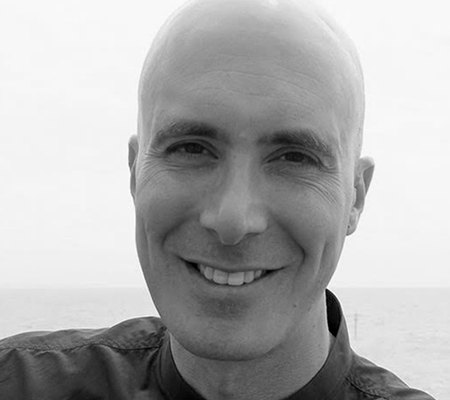By David Sheen
Israel’s cost-of-living protesters are clamoring for major changes to be made to the country’s economy, but so far their demands have been mainly limited to cutting taxes and augmenting social services. If these demands are answered, it would mean a marked increase in disposable income and the ability to purchase additional consumer goods. But if these are the only ultimatums – if the protesters fail to question the fundamental assumptions of the industrial capitalism – they will only have perpetuated this system of exploitation, temporarily saving themselves by securing promotions to middle-management positions.
Can hoisting oneself up, then reeling in the rope ladder after you’ve made it into the upper room, refusing entry to the lower classes (and “lower races”), really be considered social justice?

Pointing out the elephant in the room is a risky business on Rothschild Boulevard. You would think that if we were already talking about the inability of people to live with dignity in this country, it would behoove us to at least mention that there are certain segments of society that have it even harder than we do, and that their needs must be met, as well. But try saying this out loud, and you are likely to find a Johnny-come-lately self-styled revolutionary who never lifted a finger to fight for anything until only a month ago, angrily accusing you of trying to ‘highjack the movement’ with your ‘political’ issues.
Don’t tell him that long before he jumped on the bandwagon, veteran activists were squatting whole abandoned buildings in the city center, long before it was safe to do so, when they ran the risk of arrest and permanent police records. Those hardcore radicals rejected the idea that they should have to pay an arm and a leg just to have a roof over their heads, not because they served in the IDF, or because their grandfathers drained some swamp in pre-state Palestine, but because housing is a human right. And those real freedom fighters walked the talk, sharing their shelters with African refugees, who had just started trickling into Tel Aviv with nothing but the shirts on their backs.
So why are self-appointed ‘guardians of the revolution’ vigorously snuffing out any attempt to promote the application of the principle of ‘social justice’ to West Bank and East Jerusalem Palestinians, Israeli Arabs and African asylum-seekers? Why are the activists of Tent #48, who dare to speak up about historical housing injustices towards Palestinian citizens of Israel, constantly harassed by passersby and rival protesters on Rothschild?
Is it really because adopting this position would lead many right-wing Israeli Jews to abandon the cause, crushing any chances of success (at least for middle-class Jews)? Or could it be that expanding the chanted mantra of “social justice” to include all others would mean increased costs – that the pie they plan to get a bigger piece of will have to be divided into even smaller slices? Might this fight not be a struggle for social justice at all – but a struggle for ‘just us’?
Some leftist activists hope to deflect these attacks and funnel the widespread anger over the high cost of housing and other basic commodities into a mass movement to end the 44-year two-tier race-based system of Israeli control over the West Bank. It is true that the Israeli state heavily subsidizes the security services and infrastructural provisions that enforce separation between archipelagos of Jewish-only settlements and the sea of Palestinian villages that surround them. Ending these arrangements would certainly free up government money that could fund more social services.
But ending Israel’s military occupation of the West Bank – whether by withdrawing its armed forces and relinquishing control over it, or by extending citizenship to all people living on the land, Jewish or otherwise – would certainly cost even more money than it would save. Consider the astronomical costs of resettling Jewish settlers in pre-’67 Israel, or providing full social benefits to a million and a half Palestinian Arabs. Apartheid must end because it is unjust, not because it costs more than democracy – it doesn’t. Attempting to frame its abolition as a cost-saving measure suggests that the J14 movement may not be a struggle for social justice, but just lust for more stuff.

The #J14 protesters all want a larger share of society’s spoils, but how is that wealth accumulated in Israel? In a capitalist economy, profits are usually produced when expenses are reduced, by exploiting weaker beings and by externalizing costs. Workers’ wages are kept to a minimum and animals are imprisoned in concentration-camp conditions. In an industrial economy, profits are usually produced by plundering the biosphere, making natural habitats unviable. Stocks are harvested, and little to no efforts are made to replenish these resources, while toxic waste is excreted into living ecosystems, polluting the commons and poisoning our communities.
Ultimately, no economy – capitalist, communist, or anything in between – can ever be sustainable, if the ecology it is based upon is inherently unsustainable. The ideology of unlimited growth has finally been discredited, as it reaches its inevitable limits: we have run out of continents to enslave and species to kill off for a quick buck. The products that we have paid a relative pittance for will continue to indefinitely rise in price as the total amount of fossil fuels on the planet inexorably declines. No government subsidy can prevent a steady drop in people’s purchasing power, across the board and across the globe.
But a radical retrofitting of the Israeli economy experienced equally could turn necessary austerity measures into a net positive. Retooling production to provide every person with healthy food, clothes and shelter – organic agriculture, living-wage textile manufacturing, and ecological architecture – will mean far fewer cancers caused by toxins. True, the kilometers traversed per person on a daily basis – both for work and for play – will have to be drastically reduced, and expensive industrial appliances will have to be shared by neighbor-households working interdependently. But this isn’t counter-intuitive to Middle-Easterners – the protest camps have already proven that Israelis miss the familial closeness of the tight-knit communities they grew up in.
Even if these protests were only about housing, a true social justice movement would demand much more. It would demand that all rabbis who signed the religious edict forbidding Jews from selling or renting apartments to non-Jews reverse their rulings, and demand that the government siphon off their salaries if they refuse to do so. It would demand that the government fulfill its UN obligations and provide housing (and work permits, which would enable people to pay for affordable housing) for the African asylum-seekers that are forced to sleep on the streets and in public parks. The J14 leadership should be commended for insisting that the status of Bedouin villages needs to be normalized, but so far it has been silent on both of these other issues.
Even if these protests were only about housing, an environmental justice movement would demand much more. It would demand that the government stop stonewalling and fast-track the approval of ecologically sustainable construction materials and methods. It would demand that the government mandate permaculture-based residential development that would preserve and protect flora and fauna and improve local food security. To be sure, some radical protesters at the Rothschild, Levinsky, and Ein Karem camps have been raising all of these important issues, but these have been left off the core leadership’s list of demands.
Will the Jewish J14 protesters be satisfied with a more equitable distribution of resources, even if it means that their own quantitative living standards do not rise substantially, if at all? If the definition of social justice – the rallying cry of the protest movement – is understood to include all human beings, and indeed all the living communities that we share the landbase with – the tycoons’ profits with assuredly be drastically reduced. But the first, and maybe the only, direct beneficiaries of this redistribution of resources would be those that suffer the most, not the middle classes. Are Rothschild’s rebels altruistic enough for a real social revolution?
Jewish Israelis might be appeased with a radical restructuring of the economy that flattens out class differences, even if it doesn’t mean more consumer products per person. But this will only happen if the protesters that do believe in far-reaching social and environmental justice speak up and wage a campaign to convince their fellow citizens of its benefits. Liberal leftists should not spend their energy defending the J14 movement from any criticism from the radical left, for fear that it will tear the protests apart at their ideological seams. If they do, it will be a bitter victory. They will only guarantee themselves seats at the banquet of bullies, leaving the pyramid of power intact for a little while longer, until it completely collapses under its own weight, crushing us all.


